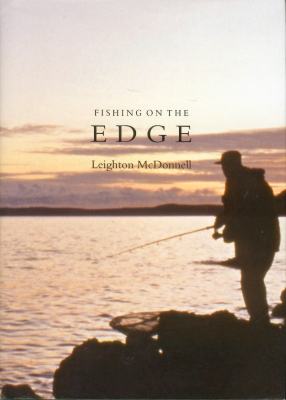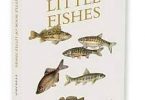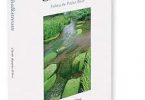Once upon a time, somewhere in Great Britain, a man (or woman) decided to venture outside and try to target fish with a hook and line. I don’t know their name. I don’t know when. I don’t even know why they didn’t just use a net and make the whole task a damn sight easier. The fact is, somebody, somewhere, had to start it.
Blimey, that must have been hard. If they’d have written a book about it, it would have had a lot of blank pages. Just imagine it; you have no previous experience of your own to draw on, no peers to look up to, no publications to read…nothing.
Now, if you fast forward to the modern day, things have got progressively easier. Even if you’d never fished before, you could hit the bank/boat/shore with some degree of background knowledge. You can imagine that our original pioneer told a few friends, who then told a few more. A network will have evolved and those able to write (not necessarily the better anglers, mind you) will have made notes. Some of these will have been published. Then somebody would have had the great idea to write a book. Publishers, encouraged by these book sales, will have said, “Hey, there’s something about this fishing lark. More people are doing it every day and the books sell. Let’s make a magazine.”
Eventually, there were a few magazines and Joe Public could read about how other anglers learnt to catch fish from the comfort of their own homes. The adventurous ones would copy their peers. The inventive ones would absorb what they’d read and adapt it. Those really inventive ones would dismiss a lot of what they read as poppycock. The really curious ones would make contact with these ‘names’ and, in the good old days, would usually engage in a beneficial dialogue (I’m not knocking modern ‘celebrities’ here – the advanced communication systems we have in the 21st century are great, but make it easy for somebody on the ladder of success to get swept back down again in a tidal wave of letters and emails!). Along came telephones, emails and eventually websites and bingo, the modern day angler has it all served up on a plate for him!
If he (or she!) wants, that is.
 What struck me, when reading Fishing On The Edge, is that Leighton McDonnell seems to not quite fit into every pigeon-hole of evolutionary angler that I could think of, which is what makes him interesting. What I particularly like is that he’s a thinking angler. Not just that, he’s also not afraid to sweep aside theories of other angling ‘names’, even if their work is treated as gospel by the majority. He doesn’t do this in a nasty way; it just strikes me that if a method or idea doesn’t work for him, rather than waste time persevering, he will either dismiss it completely, or tailor it to an almost an obsessive end. I say “almost obsessive”; I mean “obsessive”.
What struck me, when reading Fishing On The Edge, is that Leighton McDonnell seems to not quite fit into every pigeon-hole of evolutionary angler that I could think of, which is what makes him interesting. What I particularly like is that he’s a thinking angler. Not just that, he’s also not afraid to sweep aside theories of other angling ‘names’, even if their work is treated as gospel by the majority. He doesn’t do this in a nasty way; it just strikes me that if a method or idea doesn’t work for him, rather than waste time persevering, he will either dismiss it completely, or tailor it to an almost an obsessive end. I say “almost obsessive”; I mean “obsessive”.
The reason he doesn’t fit into any of the normal pigeon-holes is that Leighton seems to source information from every means available to him. In the past, he would scour magazines and books, even what would seem the most obscure ones to many anglers. He’d communicate with people, too, and, when the internet came along, it was like a whole new world of research had opened up. Rather than just use one of these sources today, it strikes me that he uses them all, filters them, comes up with a mixture of ideas and tosses in a bit of his own thinking for good measure. He’s a bit like a good chef in that respect, I suppose.
I wish that I could say that I have an affinity with Leighton, that I share his obsession and dedication, but I don’t. I’d love to, but my time and passion put into any hobby could never match his. I admire anyone who is that dedicated to angling, whether I agree with them or not. I do share Leighton’s interest in punk music, though, so I’d probably be able to steer a conversation with him onto that subject if we ever met and his angling talk got a bit too technical, and scary, for me!
In his introduction, Leighton says about Fishing On the Edge that, “To some extent it is a book of ideas (perhaps one or two very good ideas) and for the experienced angler”. Whilst I’d agree with this, I’d also say that it will appeal to two types of experienced angler. Some will read it and enjoy the fact that the author has shared some of his knowledge and experience with them. Even if it doesn’t make them go out and question what they’re doing, they’ll still enjoy the read. The other type will be the other “Leighton McDonnells” of this world – those who still question everything they’re told and are out there, often alone, experiencing the real ups and downs that come with being out there on the edge. I bet some of these people often think they’re the only ones doing the ‘whacky’ stuff, so probably keep quiet about it. This book may even encourage a few of them to come out of the closet!
About the book itself; I’ve stated that some of Leighton’s ideas don’t follow convention, and the title ‘Fishing On The Edge’ should give you a clue that it’s not another magazine-style instruction book, but please don’t think it’s way off the wall. The author is not suggesting using bananas as swimfeeders and proclaiming that your granny’s false teeth are the next superbait. No, it’s not like that, but the ideas certainly are different and, even if some are variations on themes, they’re not variations just for the sake of it.
The book is broken down into chapters and the main subjects are perch, trout, chub, carp and bass. Each chapter is like a short story about a certain species and how tactics and baits were developed by the author and used to catch them from a specific venue, or type of venue. It’s almost like each chapter is story of a particular season.
The articles are backed up with black and white photographs and diagrams, with a few colour photographs in the middle, and the writing style is easy to take in. He gets his point across without labouring it, and I enjoyed reading this book. Whether I adopt any of the author’s way of thinking remains to be seen, but that’s down to me being a lazy so-and-so, rather than the ideas not being interesting!
Unlike many modern anglers, Leighton McDonnell doesn’t believe in using a different rod for every type of fish from every type of venue. In fact, if you asked him what rod and reel he’d choose if he were only allowed one of each for the rest of his life, he’d probably answer from experience, not by sitting there for an hour and trying to weigh up the pros and cons! There’s nothing stopping any angler buying this book and trying to copy most of what’s in it on a very tight budget. For example, I found the chapter on squid as a chub bait particularly interesting. As a sea angler, I know how cheap a box of squid is and usually have some knocking around in the freezer.
Fishing On the Edge is a 161 page hardback book (180 pages if you include the photo section) and limited to just 695 copies (although the publisher’s website states 595 copies), of which 25 are leather bound. It is published by The Little Egret Press and priced at:
Full Leather Bound £ 145.00 plus P & P.
Cloth Bound with Dust-wrapper £ 21.95 plus P & P.
Visit http://www.l-e-p.com/ for more details of this book and many other interesting titles.
Review by Elton Murphy, AnglersNet.co.uk, January 2008








